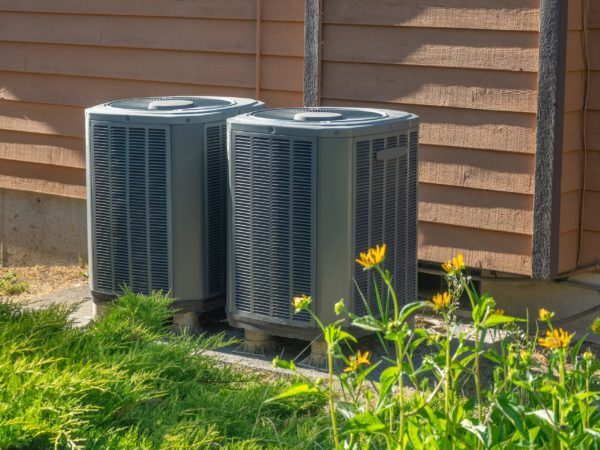
HVAC efficiency is about so much more than simply reducing your utility bills, although that’s critical with variable utility costs. Even more so, efficiency is about keeping your home comfortable, reducing the number of repairs, and extending the system’s service life. Use this guide to consider some of the best ways to improve your system’s HVAC efficiency.
Change Your Air Filter
Foremost is keeping an eye on your system’s air filter and replacing it when it gets visibly dirty. Once contaminants are visibly collecting on the filter surface, it restricts airflow into your system, making it work harder to move heated or cooled air around your home.
Ideally, check it every month and gently vacuum the dirty side to boost efficiency. Depending on your air quality and filter size, you may need a replacement as often as every 30 days or as long as once or twice a year.
Keep Vents Open and Clear
Continuing with the importance of airflow, your vents are critical for moving conditioned air evenly throughout your home. The system creates negative pressure at the return vent and positive pressure at the supply vents. This pressure difference circulates the conditioned air.
However, closing or blocking vents will change the pressure at the supply vents. Keep your vents open and give each a minimum 2-inch clearance. You’ll probably want more clearance above the vents.
Avoid Extreme Temperature Settings
You want to keep your temperature set so that you’re comfortable. However, setting it at extreme temperatures will kill its efficiency by causing it to run extended heating and cooling cycles. The US Department of Energy recommends setting your thermostat at 68 degrees in the winter and 78 degrees over the summer for optimal efficiency.
While it’s tempting to set the temperature higher during unusually cold periods, try putting on an extra sweater or sweatshirt. Be sure to use your ceiling fan to help make the room feel more comfortable, even at more moderate temperature settings. Be sure it’s spinning clockwise in the winter and counterclockwise in the summer.
Use a Smart Thermostat
Smart thermostats have programs you can set to adjust the temperature throughout the day. The Department of Energy recommends reducing the temperature over the winter and raising it over the summer by 7 to 10 degrees when you’re not home. They estimate you can reduce your annual heating and cooling costs by up to 10% by simply using the programs to make the adjustment for at least 8 hours each day.
Get Routine Maintenance
Routine maintenance is critical for your HVAC system’s efficiency. It will also enable your system to achieve its full service life. Part of a routine maintenance visit involves cleaning the various parts of the system that get dirty and restrict airflow. Depending on your system, this could include the circulating fan, heat exchanger, evaporator coil, and condensing coil.
Your technician will also test the system, looking for components that aren’t operating optimally, which adds strain to your heating and cooling cycles and cuts your efficiency. They can check for loose wires or parts that are showing wear and should be repaired before it causes the system to fail.
Use Blinds and Curtains Effectively
Losing heat in the winter and cool air in the summer through your windows can drastically drive up your heating and cooling costs. Leaving your curtains or blinds open allows for significant heat transfer. In the winter, keep your curtains shut at night to help reduce heat transfer out. Conversely, keep them shut during the day in summer to prevent excessive radiant heating.
Seal Your Ductwork
Running a central air system requires transporting the conditioned air from your HVAC system to the vents around your home using ductwork. These ducts wear over time, which allows the conditioned air to leak out and unconditioned and unfiltered air to leak in. Together, this reduces the amount of conditioned air arriving in your rooms and allows more contaminants into your system.
Prevent this from happening by having your ducts inspected and professionally sealed. Give them an extra boost by insulating ducts that run through unconditioned areas to prevent heat transfer.
Bratcher Heating & Air Conditioning, Inc. has more than 30 years of experience keeping homes in Peoria, IL and central Illinois comfortable. Our expert team provides heating and air conditioning installation, maintenance and repair alongside geothermal and indoor air quality solutions. Call to schedule your HVAC maintenance with one of our trusted technicians today.
